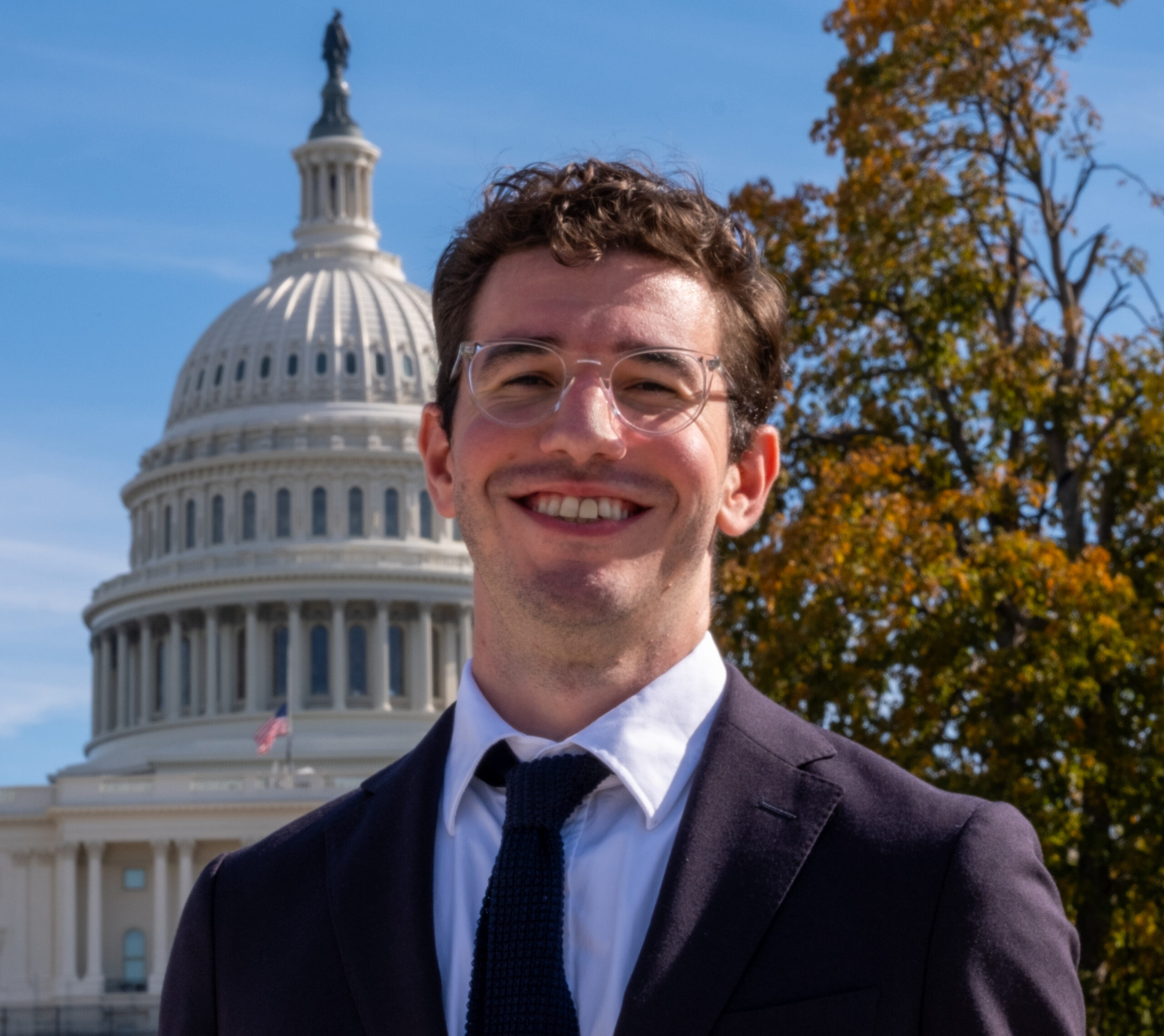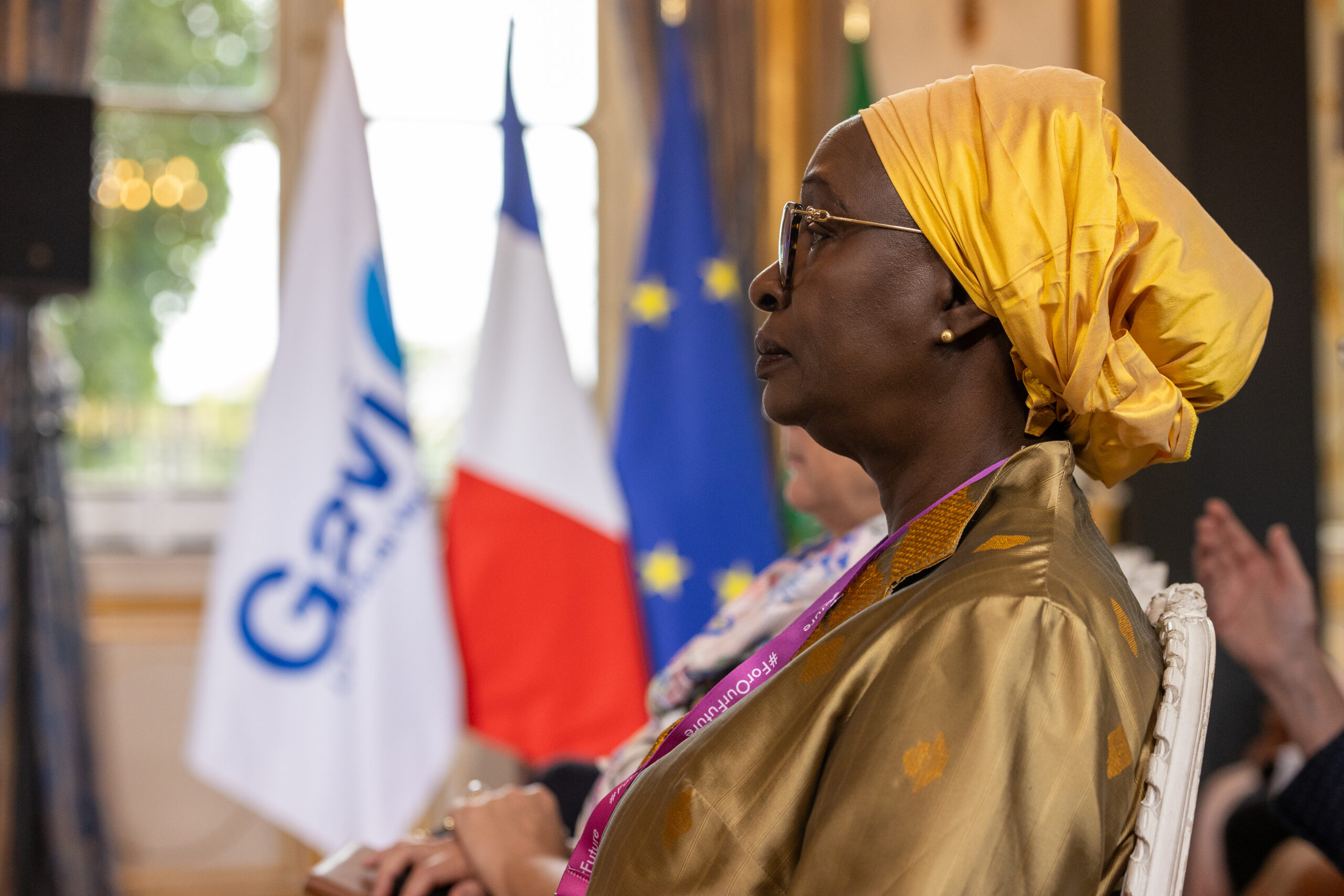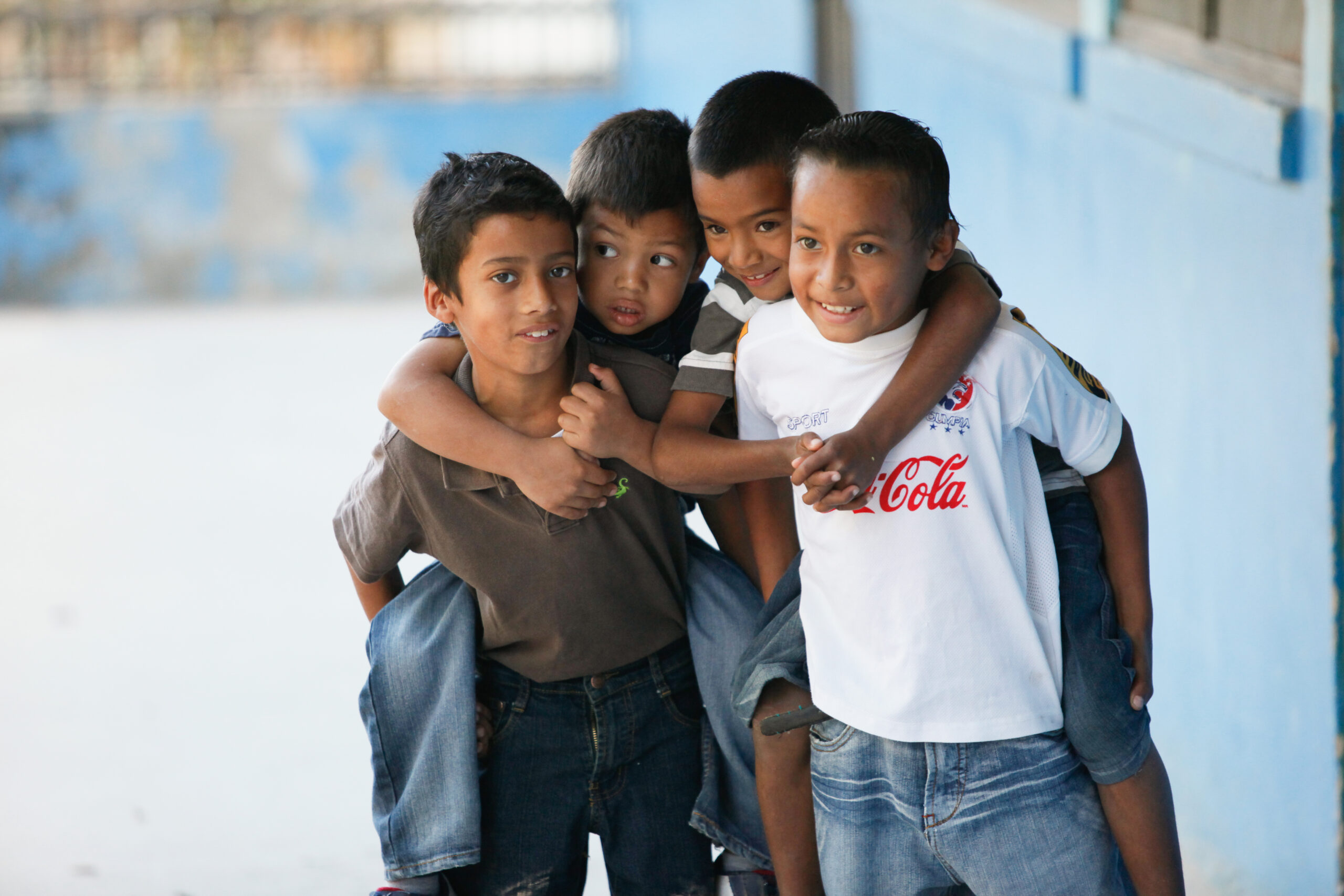Gavi Launches New Strategy for 2026-30
Last week in Paris, Gavi launched the investment case for its new strategic period and announced the African Vaccine Manufacturing Accelerator with national and civil society partners.
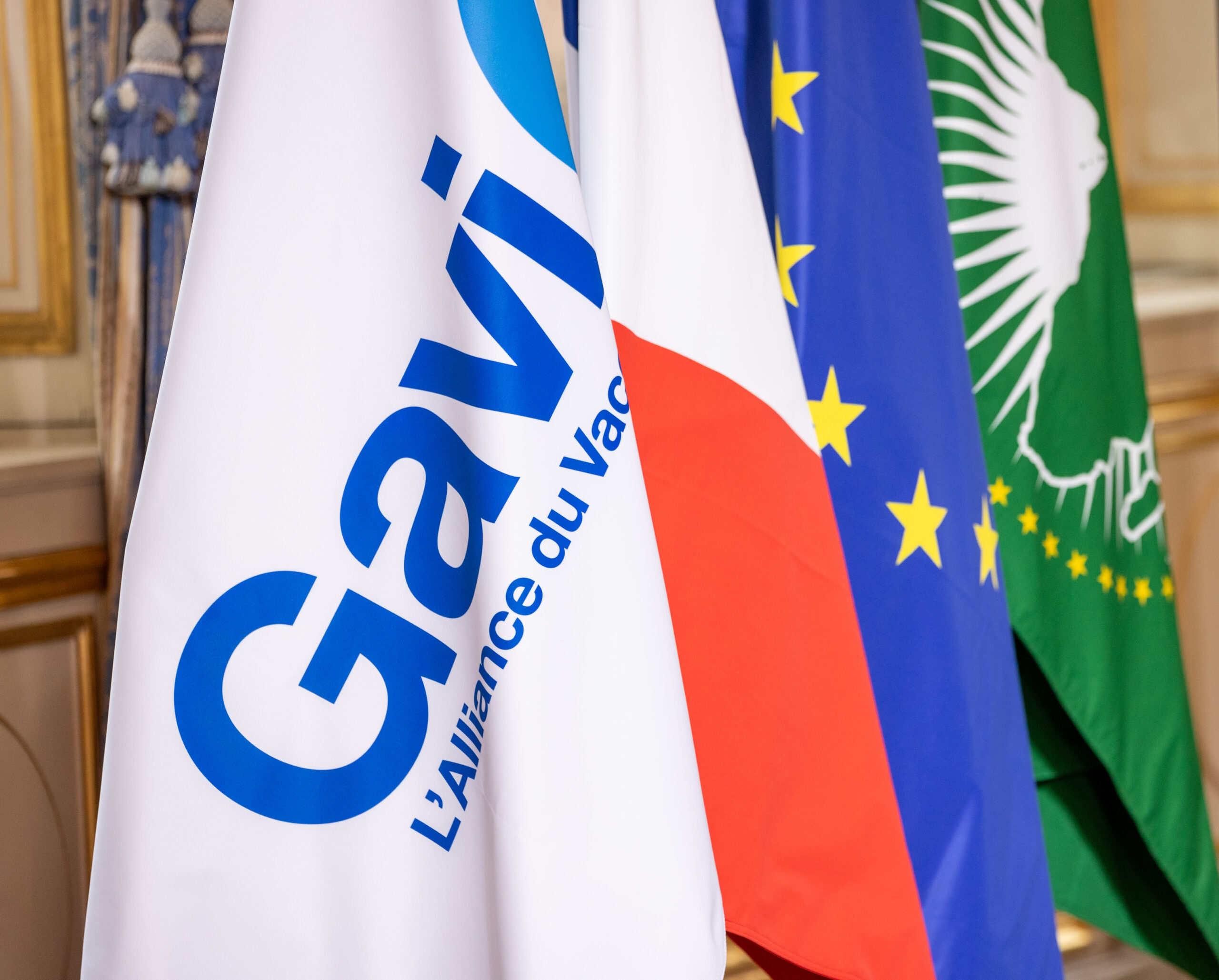
The Global Forum for Vaccine Sovereignty and Innovation, co-hosted by the African Union, the government of France, and Gavi, the Vaccine Alliance, kicked off the investment cycle for Gavi’s next strategic period. Stay tuned for a three-part series covering some of Gavi’s key priorities and the importance of continued U.S. investment. Read part one, on the African Vaccine Manufacturing Accelerator, here.
A new chapter for Gavi
The Forum takes place at the start of a new chapter at Gavi, with new CEO Dr. Sania Nishtar at the helm as the Alliance plans its 2026-30 strategic period, Gavi 6.0. The immunization landscape is also rapidly evolving, in ways that have considerable implications for Gavi 6.0.
New vaccines, including the long-awaited vaccines against malaria, are becoming available, but require financing to be rolled out at scale in the countries that need them most. Gavi is playing a leading role in supporting the distribution and rollout of the malaria vaccines, which have the potential to reduce malaria cases by as much as 75% when used with other interventions.
Gavi has also announced the expansion of its vaccine portfolio to include four new vaccines—preventive Ebola, routine multivalent meningitis, human rabies, and hepatitis B. That means countries eligible for Gavi support can now apply for funding to purchase these four vaccines for administration as part of their routine immunization programs. In a historic first, Gavi funding will help preventive Ebola vaccination become the norm in high-risk countries, preventing outbreaks and limiting deaths of one of the deadliest known diseases.
Health is also a fundamental right. It is about equity and progress. It is about equality between women and men.
Emanuel Macron, President of France, speaking at the Global Forum for Vaccine Sovereignty and Innovation.
The expansion of immunization access to protect countries and communities against new diseases is historic, but will require the financial support of the international donor community to achieve impact at scale.
What’s next?
At the Forum in Paris, Gavi officially unveiled its investment case for Gavi 6.0. Gavi’s ambitious vision includes the headline goal of immunizing 500 million more children by 2030, which will save an estimated eight million lives. Notably, the Alliance aims to fully immunize at least 50 million children against malaria and at least 120 million girls against HPV. These HPV vaccinations alone could save as many as 1.5 million lives from cervical cancer. In addition to rolling out these high-impact vaccines at scale and continuing is longstanding support for routine immunization programming, investments in Gavi can play a significant role in combating anti-microbial resistance and preparing the world for future pandemics.
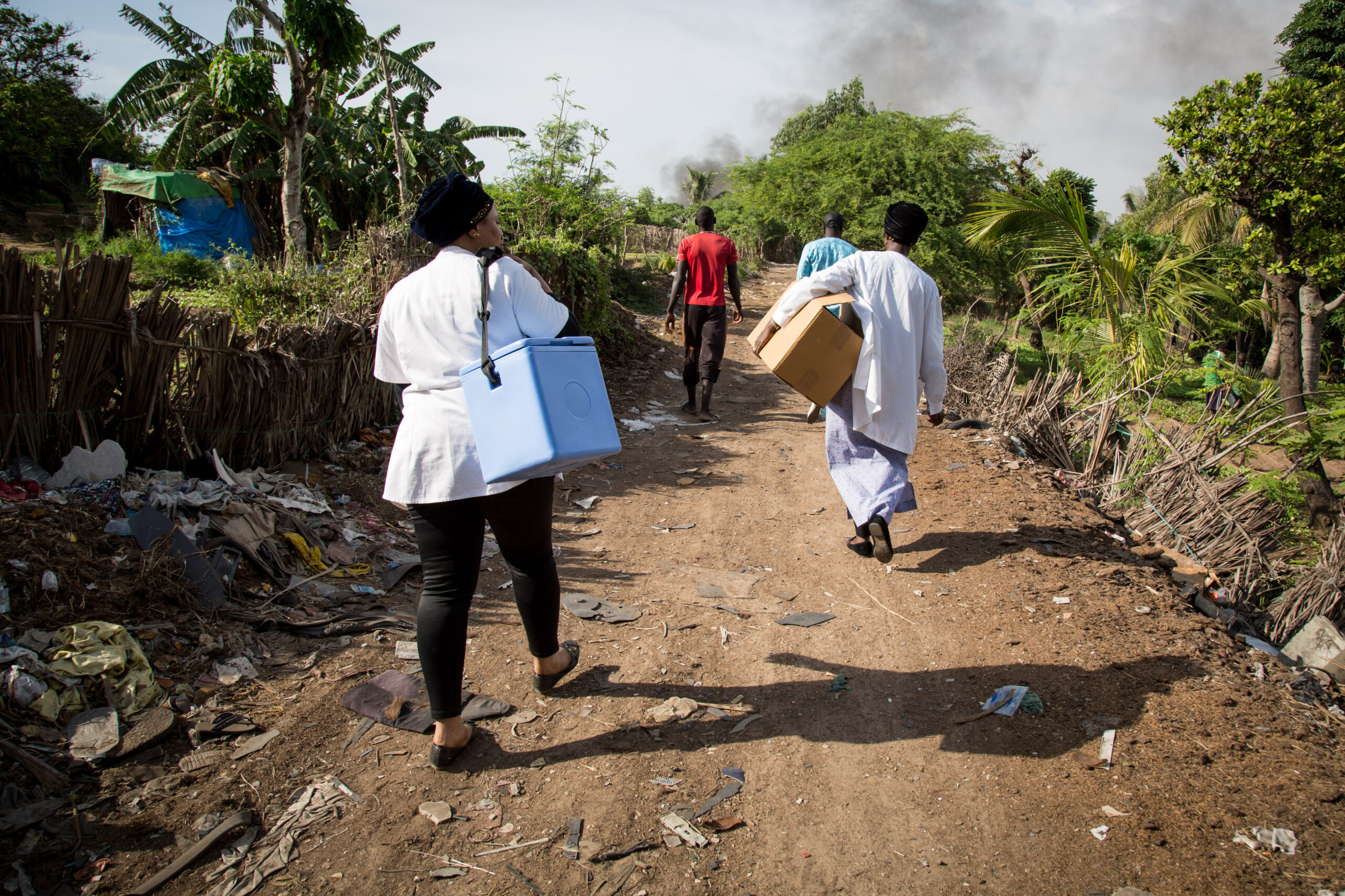
The Forum also saw the launch of the African Vaccine Manufacturing Accelerator (AVMA), a joint effort by Gavi, the African Union, and Africa CDC to stand up vaccine manufacturing capacity on the continent. In the past, Africa’s reliance on international producers has meant being last in line for critical vaccines during times of crisis or constrained supply. AVMA has the potential to kickstart the African pharmaceutical industry and make vaccine supply chains more resilient and more reliable, especially in the event of a future pandemic.
To accomplish these ambitious goals, Gavi will require $9 billion in new funding from donor countries and institutions. A number of countries, including the United States, made financial commitments at the Forum. Gavi will continue to fundraise over the next year, with the investment period to culminate in a final pledging event.
Renewed commitments
The Forum saw renewed commitments by the governments of France, which committed to at least match its contribution for the 2021-25 strategic period, and Spain, which committed to increasing its contribution by at least 25% compared to Gavi 5.0. Notably, the U.S. also made its a five-year pledge of at least $1.58 billion. This is the first time the U.S. government has made a five-year commitment of financial support that will align will Gavi’s strategy.
This historic milestone isn’t just symbolic. A full five-year commitment is an important show of confidence in Gavi and sets an example to other donor countries to similarly match or increase their commitments for the next strategic period. It’s an important display of U.S. leadership in global health, and an important step toward protecting the next 500 million children against vaccine-preventable diseases. Now, it’s time for Congress to act and make good on the U.S. commitment.
Stay tuned for our three part series on key aspects of Gavi 6.0 and the ways it could transform the global health landscape over the next five years.

